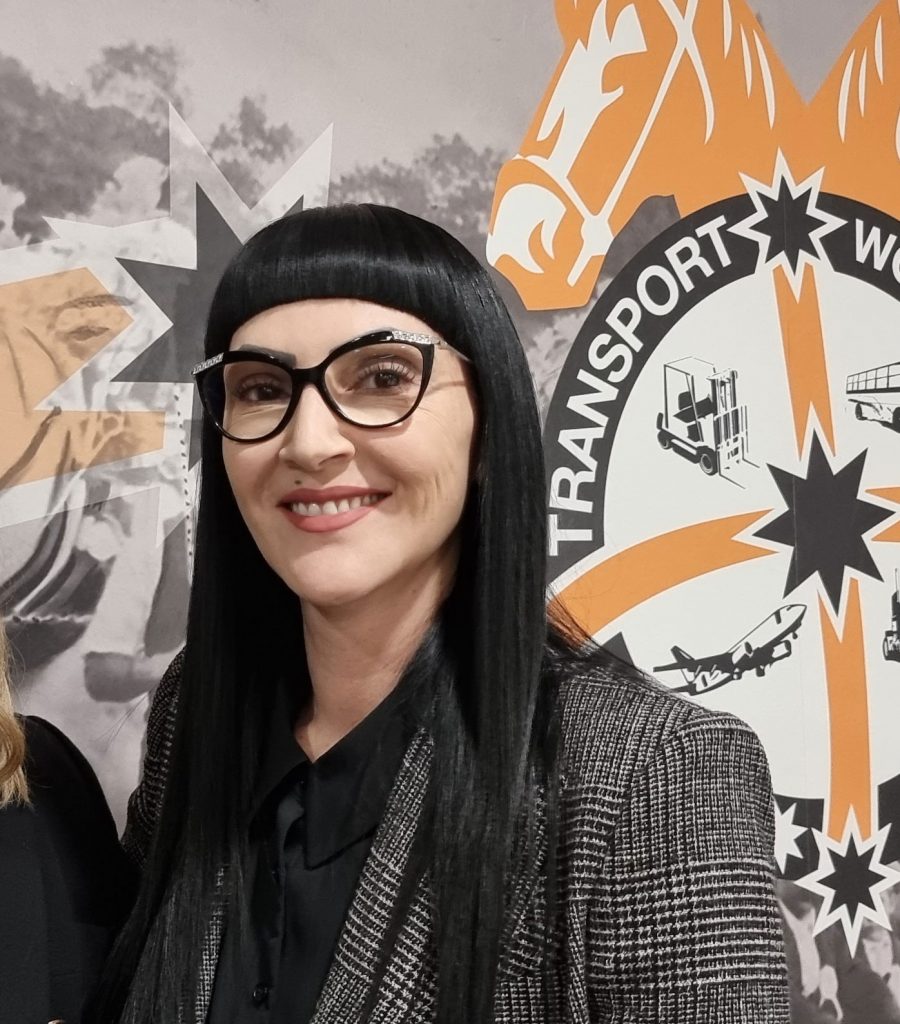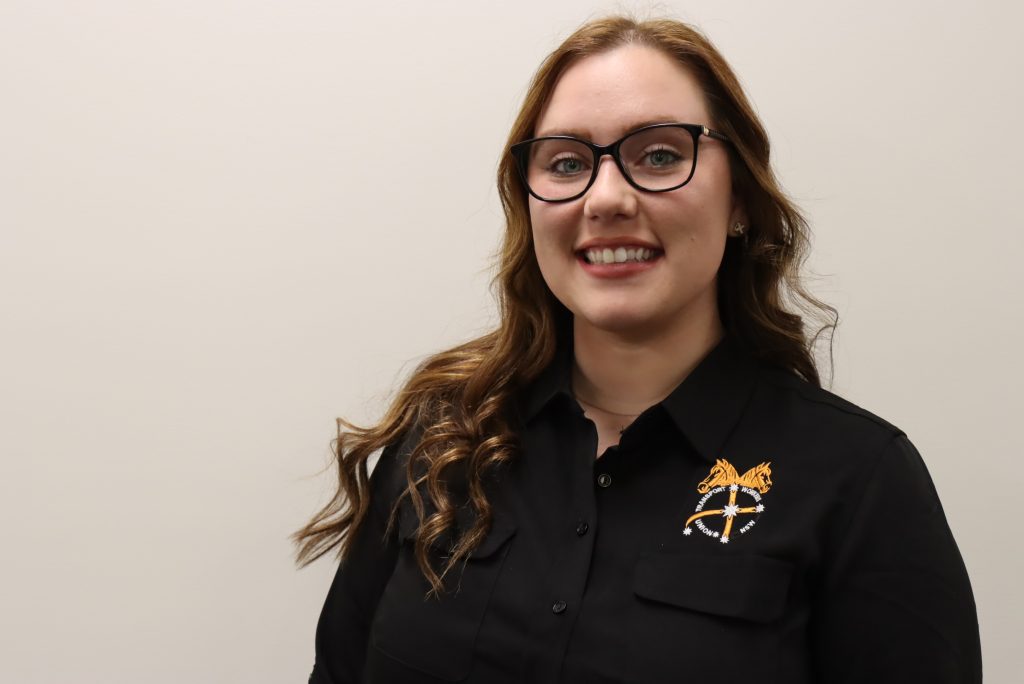I am also proud to announce that Emily Armstrong is now actively educating and empowering Health and Safety Representatives and union delegates following her recent qualifications in education and training.
– Marija Marsic, Assistant State Secretary
Director of WHS & Education

TGE – PPE Overalls
Following the sale of Toll to TGE, workshop PPE overalls were updated to show the new company logo. However, the overalls were poorly designed, with incorrect sizing and flimsy material that tore easily and didn’t provide heat protection. Workers reported burns from welding slag due to the inadequate fabric. Many had to modify their PPE at their own expense to work safely and comfortably.
HSRs raised concerns through hazard and incident reports, but no action was taken until seven PINs were issued. These addressed the company’s failure to consult workers and provide proper PPE, as well as the unfair cost burden placed on workers. TGE eventually accepted the PINs, reimbursed workers for the alterations, and began consulting with HSRs to ensure appropriate PPE was provided.
Capital Transport – Levy on Owner Drivers
Owner drivers are classified as workers under WHS laws. Capital Transport required these drivers to purchase wheel chocks after clients made it a site safety requirement for loading and unloading. However, the company failed to consult with the drivers and simply gave them a link to purchase the chocks.
The TWU sought assistance from SafeWork, and the inspector ruled in favour of the workers. They confirmed owner drivers, like all workers, cannot be required to purchase safety measures imposed by the employer. It is the responsibility of the PCBU to provide necessary control measures, such as wheel chocks, at no cost to workers, ensuring safety requirements don’t become a financial burden.
SafeWork NSW – Code of Practice
Over the past year, the TWU has been collaborating with SafeWork NSW on industry-specific codes of practice for Domestic Waste and Cash-in-Transit (CIT). These codes provide guidance on addressing safety issues in these sectors.
The TWU has contributed real-life examples from members, using case studies to highlight what PCBUs did wrong and how they could have followed best practices.
Once these codes are published, they will serve as valuable tools for HSRs in the Waste and CIT industries. The codes will outline what PCBUs should be doing to ensure worker safety and will support HSRs when issuing PINs to enforce compliance.
Emily’s key role

Emily Armstrong is a dedicated and passionate advocate for work health and safety, serving as the WHS & Education Official at the TWU NSW. A proud and committed union member for over a decade, Emily brings more than five years of specialised experience and holds tertiary qualifications in work health and safety.
For the past three years, she has been at the forefront of the TWU’s fight for safer working conditions and fairness in the transport sector. With her recent qualifications in education and training, she is now actively educating and empowering Health and Safety Representatives and union delegates.
As a certified HSR trainer through Comcare and SafeWork NSW, Emily plays a key role in shaping industry standards. She regularly collaborates with WHS regulators and industry forums to influence codes of practice that protect workers. Emily’s commitment to the union is shown through in her leadership, having chaired the Women’s Panel at the TWU Delegates’ Conference for two consecutive years, where she tirelessly works to amplify union members’ voices and drive meaningful change.